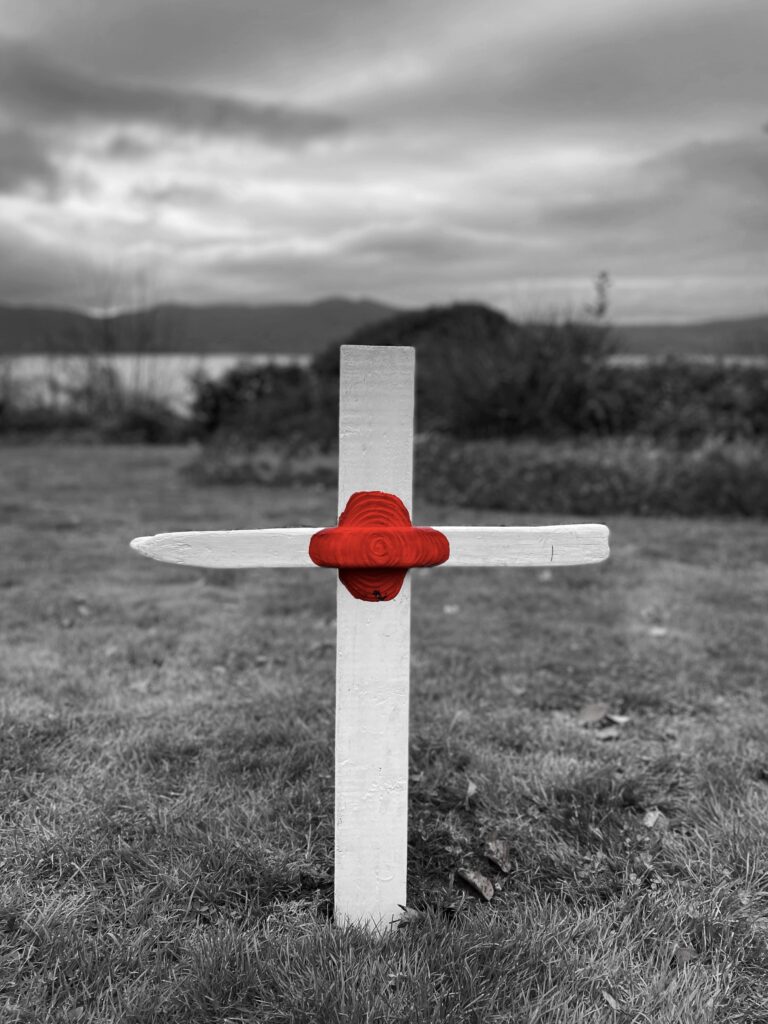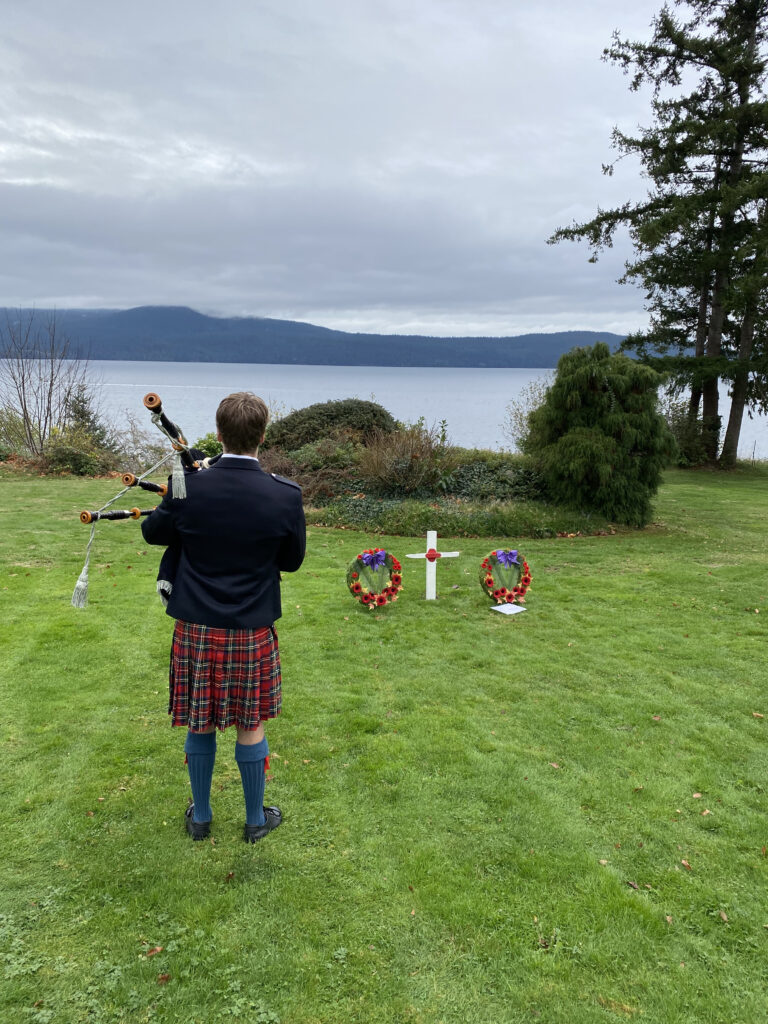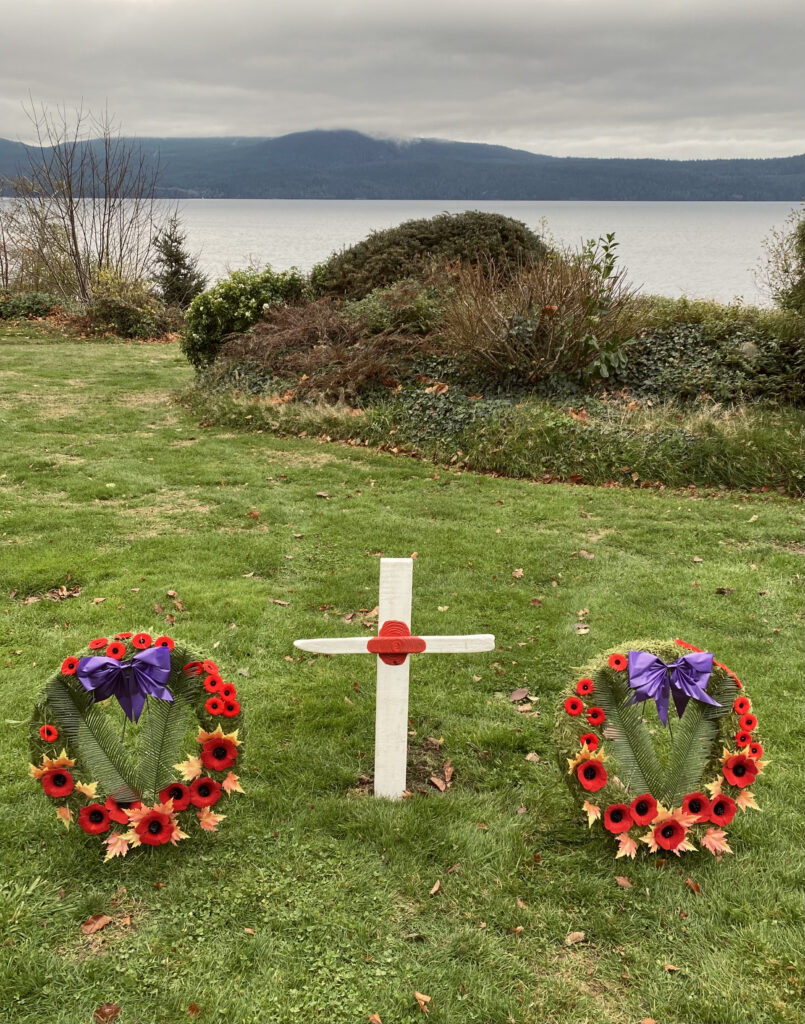SCHC and GSWC work with many clients from the Veteran community, some of which come to us directly from Veterans Affairs Canada (VAC). As a world-class center for addictions and mental health, we have long been able to support Veterans and their families in treatment and recovery.
At our centres, we take an approach that recognizes not just the physical and psychological elements of mental health and addiction, but also their social and spiritual elements. Remembrance Day is significant to many clients and staff at SCHC/GSWC, as it provides opportunities to reflect on ideas around identity, meaning, and purpose.

While it is often thought about as a sombre holiday, Remembrance Day is also based on hope and community. In this article, we will look at the history of Remembrance Day, what we remember, and why we remember it.
The History of Remembrance Day
Remembrance Day has its origins in the First World War. On November 11th, 1918, the Allies of World War I signed an armistice with Germany for the cessation of hostilities on the Western Front—this took effect at the 11th hour of the 11th day of the 11th month. While the war wasn’t officially over, the armistice presented some hope in what had been a brutal episode of human history.
The First World War officially ended with the Treaty of Versailles (1919), and November of that year marked the first Armistice Day, during which the war’s end was celebrated. This took place at Buckingham Palace and sparked a tradition that would continue into the present day in many countries around the world. During the Second World War, the holiday took on other names, depending on the country. In Canada, Armistice Day became Remembrance Day; in the US, it became Veterans Day.
What Do We Remember On Remembrance Day?
At the start of WWI, British author H.G. Wells published a book called The War That Will End War. Far from Wells’ wheelhouse of fiction, the book represented a genuine hope that the Great War would be both a first and a last.
Two decades later—during which many smaller wars took place—the world found itself in a Second World War (WWII), with even higher casualties than the first. The Second World War gave us weapons strong enough to destroy all of humankind, and brutalities terrible enough to coin the WWII phrase Never Again.
And yet, wars continued, and continue to this day.
Through this time, Canadian men and women have given selflessly in wars like the Korean War, in Canada’s mission in Afghanistan from 2001-2014, and in other Peace support operations. They’ve given their time, their skills, their efforts, and in many cases their lives.
Remembrance Day is about recognizing the ordinary people who have made extraordinary sacrifices for their countries and for their beliefs. It is a holiday which is observed by active members of the Forces, Veterans and by civilians.
Why Do We Remember?
Heather Margaret Robertson was a Canadian journalist and writer. In her book A Terrible Beauty: The Art Of Canada At War, she compiles paintings from the war art collections at the Canadian War Museum and the National Gallery of Canada, along with stories, letters home, poems, songs and transcriptions of radio broadcasts.
In the book, she also answers the question: Why Remember?
We must remember. If we do not, the sacrifice of those one hundred thousand Canadian lives will be meaningless. They died for us, for their homes and families and friends, for a collection of traditions they cherished and a future they believed in; they died for Canada. The meaning of their sacrifice rests with our collective national consciousness; our future is their monument.
War is something abstract for many people—far from their daily lives. But for Veterans and members of the Forces, war is something that is deeply embedded. It impacts lives and it impacts families.


By remembering the wars and peacekeeping missions of the past and present, we recognize the tremendous sacrifices that individuals have taken upon themselves for the sake of our present and future.
For more on Remembrance Day:
- Remembrance – Veterans Affairs Canada
- Remembrance Day – Carleton University
- Why We Celebrate Remembrance Day — No Stone Left Alone
- Remembrance – Royal Canadian Legion
- Heather Robertson, A Terrible Beauty, The Art of Canada at War. Toronto, Lorimer, 1977
Sunshine Coast Health Centre and Georgia Strait Women’s Clinic are world-class centers for addiction treatment and mental health. At SCHC, we take an approach that recognizes the importance of the physical, psychological, social and spiritual aspects of individuals in treatment and recovery. If you or someone you know is struggling with substance use and PTSD, give us a call today.



